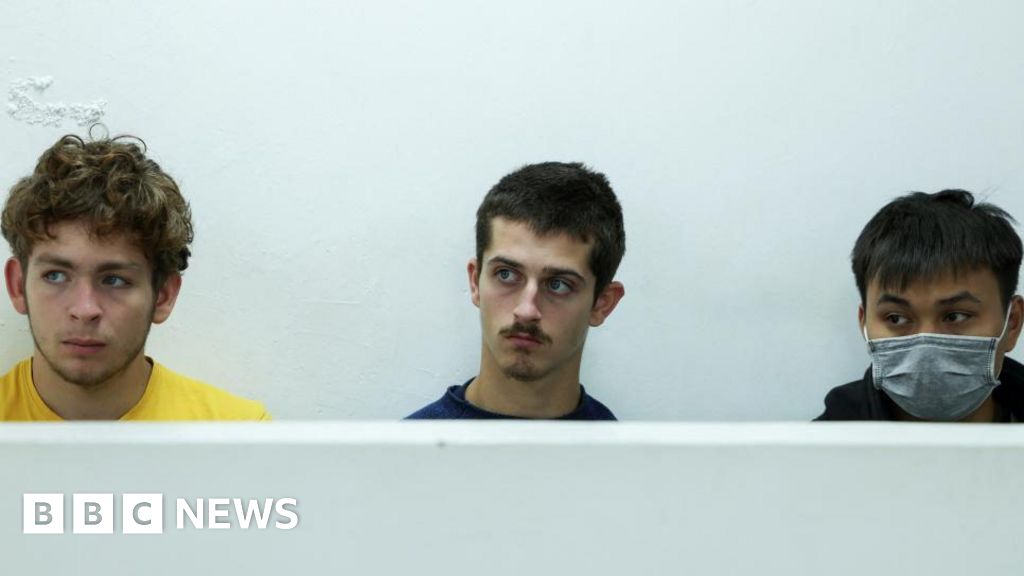ARTICLE AD BOX
Jessica Parker
BBC News
Reporting fromBerlin
The day Germany's new leader entered office will now forever be remembered for a very public failure.
Friedrich Merz's initial, shock defeat - in his bid to become chancellor - sparked hours of chaotic uncertainty.
A man who'd been working to project strength and purpose instead became mired in political intrigue and division.
Merz may have won on the second try, but today's messy path to power raises serious questions about the future government.
If he couldn't muster the votes amongst coalition colleagues - at such a key moment - how will he fare when trying to push through any contentious legislation?
It comes as Germany faces a prolonged recession, fractious arguments on immigration, potentially seismic decisions on defence spending and a surging far-right political force.
But Merz's allies insist the situation can quickly be recovered and reject the idea that Merz emerges irreparably damaged.
"Now we are looking in front and forward," says Gunther Krichbaum, a veteran of the Christian Democratic Party (CDU) and Germany's new Europe Minister.
"So I think we will have a very, very good and also stable government," he told the BBC.
"This is not only necessary for Germany but also Europe."
Berlin's allies have been impatient to see an effective administration, after the bickering that characterised the last, collapsed coalition government.
But Merz now heads off for his planned trips to Warsaw and Paris on Wednesday in the shadow of a tumultuous Tuesday.
There's speculation aplenty as to which MPs, in the secret ballot, didn't back Merz on the first round - and why.
Disgruntled people, passed over for government jobs, is one theory.
Did members within the centre-left Social Democrats (SPD) decide that they had to protest at the political compromises struck with Merz's centre-right party?
Or did the forthright Merz - and ambitious SPD Vice-Chancellor Lars Klingbeil - struggle to rally their own ranks?
Figures from both sides were quickly keen to suggest that the other was chiefly to blame.
Whichever MPs did the deed they were, it seems, willing to risk making Merz and his acolytes sweat.
Alternative fur Deutschland (AfD), who are suing Germany's domestic intelligence service for classing the party as extremist, had a ringside seat for the whole show.
Following February's election, the AfD is the main opposition party and pounced on events as evidence of the fundamental weaknesses within a coalition made up of the centre-right CDU/CSU parties and centre-left SPD.
"It is very clear that this government... will be a very, very unstable one," says Beatrix von Storch, the AfD's deputy group leader.
She also echoed claims that it was all further proof that the so-called "firewall" of non-cooperation with her party will not last.
"This has shown that this firewall has to fall if you want to have a shift in politics in Germany," von Storch told the BBC.
Also watching on from the Reichstag's visitors' gallery was Merz's old political rival from within the CDU, former chancellor Angela Merkel.
He once lost out to her in a power struggle but returned later to politics - to try and realise his long-held dream of taking the top job.
This can't have been the way in which Merz envisioned entering office.
But, more importantly, the spectacle leaves his claims of being ready to provide firm government, significantly undermined on day one.

 16 hours ago
12
16 hours ago
12








 English (US) ·
English (US) ·